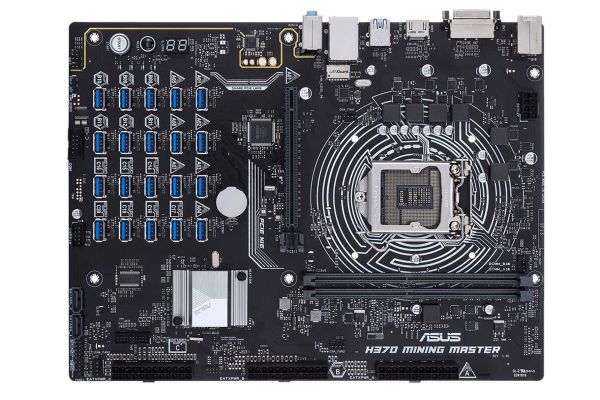Mining hardware is weird stuff. Either it’s commodity hardware used – inefficiently – for complex computation or specifically-designed, expensive boards that can be used to bring in Bitcoin and little else. Asus, a motherboard maker of some renown, is now helping bridge the gap.
The H370 Mining Master is a basic motherboard that supports 20 graphics cards, the boards used for Ethereum and other less resource-intensive scripts. The cards connect via PCIe-over-USB and each port has is individually controlled and managed by on-board diagnostics. This lets you ensure that each graphics card is running properly and fully connected.
From the release:
Less time maintaining your machine means more time mining with it, which is why the H370 Mining Master includes a suite of diagnostic features designed to make your platform easier to manage. Chief among them is GPU State Detection, which scans the system at boot and indicates whether each riser port is empty, connected to a functional graphics card, or experiencing problems. The updated State Detection GUI clearly identifies the location and status of each port along with the alphanumeric code that identifies it. Onboard diagnostics are augmented by individual debug LEDs that light up when there are problems with specific system components, like the CPU or memory.
The boards also has a number of cryptocurrency features that are activated “out of the box.”
The board ships in Q3 2018 for a few hundred dollars – a far cry from the massive costs associated with custom hardware. Now you just need to power all those massive graphics cards to keep the mining gear going.
John Biggs
http://feedproxy.google.com/~r/TechCrunch/JohnBiggs/~3/lQbtVATRLWU/
Source link

